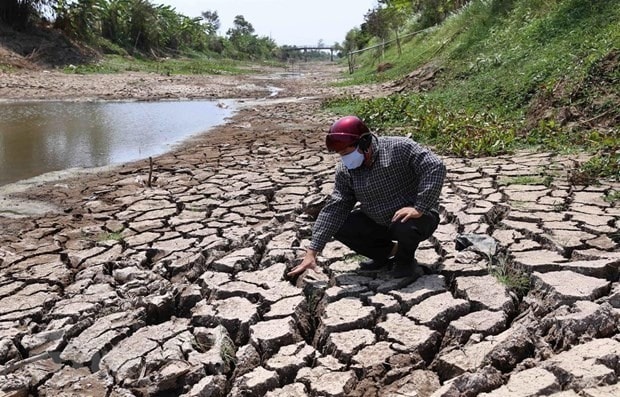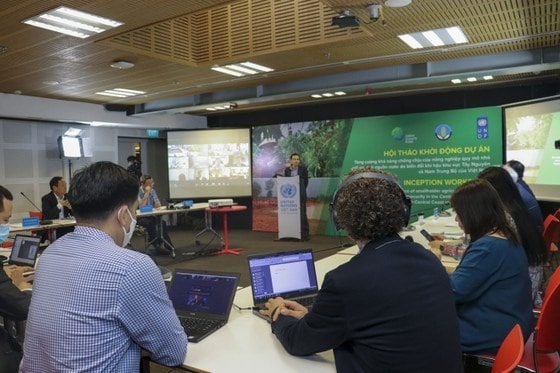Project on climate change adaptation to benefit central Vietnam
Hanoi (VNA) – A climate change adaptation project has been launched to strengthen the resilience of smallholder agriculture to climate change-induced water insecurity in the Central Highlands and the south-central coast.

Financed with 30 million USD by the Green Climate Fund (GCF), it was launched by the United Nation Development Programme (UNDP) and the Ministry of Agriculture and Rural Development (MARD) on October 15, covering the five provinces of Dak Lak, Dak Nong, Khanh Hoa, Ninh Thuan, and Binh Thuan.
More than 500,000 people, of which more than 50 percent are women, will benefit directly and indirectly from this project, which will be implemented from 2021 to 2026.
The project is designed to empower vulnerable smallholders in the target provinces - particularly women and ethnic minority farmers - to manage increasing climate risks to agricultural production by securing water availability, adopting climate-resilient agricultural practices, and strengthening access to actionable agro-climate information, credits and markets.
To address water insecurity, the project will support the smallholder farmers, whose income do not permit investment in climate resilience-enhancing inputs, technologies or infrastructure to cope effectively with impacts of droughts, to directly address the need for investments in last-mile connections to the larger irrigation infrastructure invested by the government with the finance from the Asian Development Bank. Similarly, farmers in rain-fed areas will benefit from the upgrading and construction of 1,159 climate resilient ponds.

Farmers will be provided with training on how to manage climate risk to their agro-ecosystems by applying climate-resilient soil and crop planning and management practices to reinforce the investments in water security. They will also receive technical guidance and financial support on climate smart- and resilient agriculture practices to improve production and increase yields.
Farmers will be engaged in the co-development of localised agro-climate information in the form of advisories, through which they will be able to synthesise traditional knowledge with contemporary scientific information to manage risk at local level.
The project will enable farmers to address production problems and bottlenecks, access credit, negotiate contractual arrangements, and smooth access to existing markets through promotion of value chain partnerships.
MARD Deputy Minister Nguyen Hoang Hiep said the project reflects the strong commitment and efforts by the Government of Vietnam, one of the countries most vulnerable to climate change, to support vulnerable communities, ethnic minority groups, the poor farmers, women and men to be resilient to increasing climate change impacts in the new situation with uncertainty from the COVID-19 pandemic.
“This project complements the ongoing GCF project that UNDP supports in 28 coastal provinces for building the resilience of poor communities vulnerable to floods and storms, bringing together these innovative and integrated approaches will ensure to improve the resilience of more than a million most vulnerable people in Vietnam,” said Terence D. Jones, UNDP Resident Representative a.i. in the country./.
VNA
